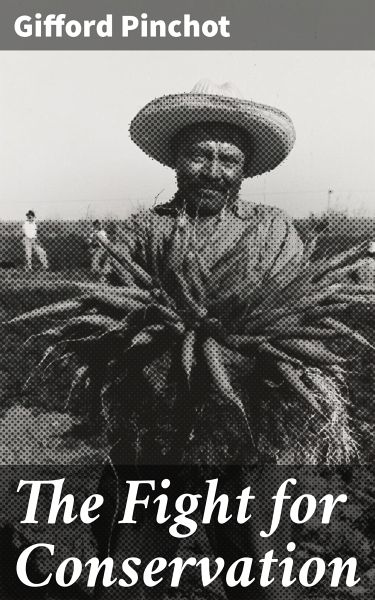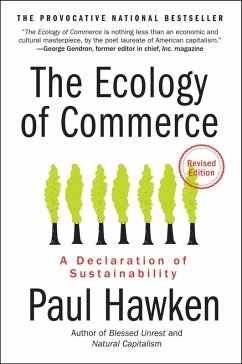
The Fight for Conservation (eBook, ePUB)
Enriched edition. The Environmental Conservation Movement in America
Kommentar: Burns, Adrian / Redaktion: Good Press
Versandkostenfrei!
Sofort per Download lieferbar
2,49 €
inkl. MwSt.
Weitere Ausgaben:

PAYBACK Punkte
0 °P sammeln!
In "The Fight for Conservation," Gifford Pinchot offers a compelling narrative that intertwines the principles of environmentalism with the pragmatic realities of natural resource management. Pinchot advocates for the responsible use and stewardship of America's forests, emphasizing the need for sustainable practices at a time when industrial expansion threatened ecological integrity. His eloquent prose and persuasive rhetoric not only highlight the philosophical underpinnings of conservation but also address the political and social challenges inherent in mobilizing public support for environ...
In "The Fight for Conservation," Gifford Pinchot offers a compelling narrative that intertwines the principles of environmentalism with the pragmatic realities of natural resource management. Pinchot advocates for the responsible use and stewardship of America's forests, emphasizing the need for sustainable practices at a time when industrial expansion threatened ecological integrity. His eloquent prose and persuasive rhetoric not only highlight the philosophical underpinnings of conservation but also address the political and social challenges inherent in mobilizing public support for environmental causes. Demonstrating an acute awareness of contemporary scientific thought, Pinchot's work is both a manifesto and a call to action, laying the groundwork for the modern conservation movement. Gifford Pinchot, the first Chief of the United States Forest Service, was instrumental in shaping national policies on conservation and sustainable forestry. His experiences in the field, coupled with his education at Yale, informed his vision of a balance between development and preservation. Pinchot's profound commitment to environmental ethics was not merely academic; it was born from a deep-rooted connection to the land and a desire to protect it for future generations. His advocacy was pivotal in the establishment of protected national spaces that remain relevant in today's environmental discourse. "The Fight for Conservation" is an essential read for anyone invested in ecological advocacy, policy-making, or environmental studies. Pinchot's insights into the interplay between nature and society provide timeless lessons for restoring our relationship with the planet, making this work not only historically significant but also critically relevant in the face of contemporary environmental challenges. In this enriched edition, we have carefully created added value for your reading experience: - A succinct Introduction situates the work's timeless appeal and themes. - The Synopsis outlines the central plot, highlighting key developments without spoiling critical twists. - A detailed Historical Context immerses you in the era's events and influences that shaped the writing. - A thorough Analysis dissects symbols, motifs, and character arcs to unearth underlying meanings. - Reflection questions prompt you to engage personally with the work's messages, connecting them to modern life. - Hand-picked Memorable Quotes shine a spotlight on moments of literary brilliance. - Interactive footnotes clarify unusual references, historical allusions, and archaic phrases for an effortless, more informed read.
Dieser Download kann aus rechtlichen Gründen nur mit Rechnungsadresse in A, B, BG, CY, CZ, D, DK, EW, FIN, F, GR, H, IRL, I, LT, L, LR, M, NL, PL, P, R, S, SLO, SK ausgeliefert werden.













